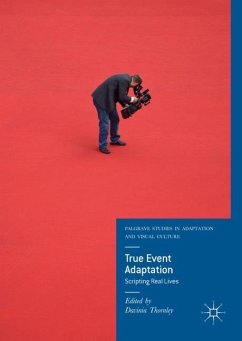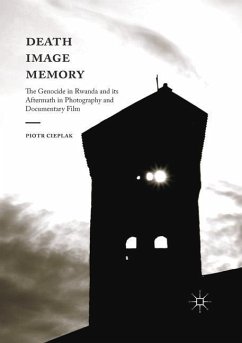
Hesitant Histories on the Romanian Screen
Versandkostenfrei!
Versandfertig in 6-10 Tagen
53,99 €
inkl. MwSt.
Weitere Ausgaben:

PAYBACK Punkte
27 °P sammeln!
This book argues that hesitation as an artistic and spectatorial strategy connects various screen media texts produced in post-war Romania. The chapters draw a historical connection between films made during the state socialist decades, televised broadcasts of the 1989 Romanian revolution, and films of the new Romanian cinema. The book explores how the critical attitude of new Romanian cinema demonstrates a refusal to accept limiting, binary discourses rooted in Cold War narratives. Strausz argues that hesitation becomes an attempt to overcome restrictive populist narratives of the past and pr...
This book argues that hesitation as an artistic and spectatorial strategy connects various screen media texts produced in post-war Romania. The chapters draw a historical connection between films made during the state socialist decades, televised broadcasts of the 1989 Romanian revolution, and films of the new Romanian cinema. The book explores how the critical attitude of new Romanian cinema demonstrates a refusal to accept limiting, binary discourses rooted in Cold War narratives. Strausz argues that hesitation becomes an attempt to overcome restrictive populist narratives of the past and present day. By employing a performative and mobile position, audiences are encouraged to consider conflicting approaches to history and social transformation.












